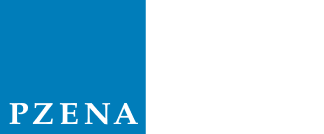Pzena Investment Management – Global Modern Slavery and Human Trafficking 2025 Statement
This statement is issued by Pzena Investment Management, LLC1 and its affiliated entities (together, “Pzena”), to outline the actions we have taken to identify and mitigate the risk of modern slavery and human trafficking occurring in our business operations and supply chains. This statement is for the reporting period 1 January 2024 to 31 December 2024. It is issued as a joint statement in compliance with both section 54 of the UK Modern Slavery Act of 2015 and section 13 of the Australian Modern Slavery Act of 2018.
We are a global investment management firm headquartered in New York City with business development offices in London and Melbourne and an operational and business development office in Dublin. We apply a classic value approach to investing that requires a commitment to research-driven stock selection and environmental, social, and governance (“ESG”) integration. Our team focuses on research that yields a deep understanding of the long-term prospects and intrinsic value of a company. We have always believed that ESG issues, such as modern slavery, where material to a company’s operations from a risk or an opportunity perspective, have the potential to impact these drivers of earnings. That is why we became signatories to the Principles of Responsible Investing (PRI) in 2018, became a member of the International Financial Reporting Standards (IFRS) Sustainability Alliance in 2020, accepted the Japan Stewardship Code in 2021, and have continually added ESG resources to our investment team.
We believe our success and reputation depend on both the quality of our products and services, and on how we conduct our business. Responsibility, sustainability, and respect for human rights are integrated into our business and due diligence models and are fundamental to the way we serve our clients and manage our investments. We support and actively seek to align our values with the United Nations Guiding Principles on Business and Human Rights and take seriously our responsibility as a business enterprise to respect human rights.
We believe, given the nature of the services we offer, the risk of our involvement in modern slavery and human trafficking throughout our operations and supply chains is low, as (i) we and our suppliers generally operate in lower risk jurisdictions, (ii) we have in place robust money laundering controls to mitigate against the risk of financing modern slavery or bonded labor, and (iii) our business partners in the financial services sector present a low risk of modern slavery. To assess, monitor, and mitigate our risk, we have formed and empowered an ESG Operating Committee and a Vendor Committee, each charged with reviewing our business operations, including potential exposure to modern slavery and human trafficking in all its forms.
Our Investments and Stewardship
To analyze and manage the risk of modern slavery in our investments, we rely on our established and robust ESG-integrated investment due diligence process. We are also active owners of the companies in our portfolios and proactively engage with companies where risk or allegations of modern slavery exist. We profile select engagements in our annual Stewardship Report and actively discuss any incidents quarterly with our interested clients.
Integrated ESG analysis is central to the investment process of a value manager precisely because we are examining companies experiencing difficulty. Sometimes this difficulty is the result of a poorly managed ESG risk which created the buying opportunity in the first place. It is our job as a value manager to understand what went wrong and focus our research on whether the company can remediate the issues. As shareholders, we are also active owners, voting proxies and maintaining a dialogue with company management on key issues, remediation of risk, and the path towards earnings recovery. We spend a considerable proportion of our research effort after investment continually monitoring risk factors, as well as revisiting and testing our assumptions against a company’s real-time earnings progression. Assessment of emergent challenges and opportunities is core to our process.
As this relates to modern slavery concerns, it is our view that certain industries are naturally more exposed to risks or allegations of modern slavery than others. The most common industry risk factors include reliance on low-cost labor and/or opaque and complex supply chains. Industries where these risk factors are more common include engineering & construction, agriculture, food distribution, and apparel manufacturing. We pay particular attention to modern slavery when researching companies in these industries. We will also research and evaluate any instance of modern slavery that may present itself in other industries, even if the common risk factors are not present. We have produced an industry and organizational risk assessment document for analyzing modern slavery risk that is used to assess ongoing and potential investments, which can be found here. In addition, we use several data providers to help screen our investments for potential allegations of modern slavery on an ongoing basis.
In terms of our approach to due diligence, we evaluate companies’ modern slavery disclosures, policies, and procedures, and we proactively engage management to understand how they think about these risks. This applies not only to new positions, but also to existing positions in our portfolios if an allegation of modern slavery appears during the course of ownership. As necessary, we engage management to understand the nature of the allegations and advocate for changes to a company’s actions.
Finally, some manifestations of ESG risk may not have a clear financial impact on earnings but are deemed material societal risks. In these cases, we approach the issues as we would material financial risks and engage management. We consider child labor and/or involvement in human trafficking as such risks. We plan to continually evaluate whether we should add additional issues to this list in the future.
Our People
At Pzena, we are firmly committed to maintaining the highest standards of ethical conduct, human rights, fair labor practices, and equal opportunity, fostering a workplace rooted in integrity, inclusion, and respect across all areas of our operations. We strictly comply with applicable labor and employment laws in the jurisdictions in which we operate, recognizing our responsibility to proactively prevent modern slavery, forced labor, and human trafficking within our business and people operations.
Our workforce is employed under fair and lawful terms, with just and favorable working conditions, including comprehensive health and safety protections and access to resources that support their physical, mental, and financial wellbeing.
Our employment framework is underpinned by
- Non-discrimination policies that ensure equal treatment irrespective of age, race, nationality, ethnicity, gender, sexual orientation, religion, marital status, or disability
- Robust recruitment practices aligned with employment law and designed to ensure transparency, equity, and protection against exploitation
- Market-competitive compensation and benefits, reviewed annually to ensure fairness, consistency, and alignment with industry benchmarks
- A formal well-being strategy, offering initiatives that promote employee health, resilience, and lifestyle choice
All employees receive mandatory annual training on Workplace Conduct, including identifying and responding to various forms of unethical behavior. We continuously expand our awareness-building and learning offerings to further reinforce our culture of integrity and ethical business conduct.
Fairness and equal opportunity are integrated across our talent practices, from recruitment to career progression. We actively monitor the effectiveness of these practices through feedback loops and employee engagement mechanisms, ensuring they remain relevant and aligned with both internal expectations and broader regulatory and societal standards.
We maintain high standards of corporate conduct, governed by our Code of Business Conduct and Ethics, Employee Handbook, whistleblowing policy, and related compliance protocols. All employees are informed of their responsibilities under these frameworks and encouraged to report any actual or suspected violations, including those related to human rights or labor conditions.
Our approach reflects a proactive and comprehensive response to modern slavery risk management. By embedding ethical responsibility, compliance, and inclusive practices into our people processes, we aim to not only meet regulatory requirements but to exceed them—promoting long-term, sustainable value and upholding the trust placed in us by our clients, employees, and stakeholders.
Our Operations and Supply Chains
We are a purchaser of products and services for the purposes of our internal operations. Our supply chains include providers of financial services data and software and providers of business services including travel, hospitality, catering, and office supplies and services.
We are committed to ensuring that our supply chain is free of human trafficking and modern slavery. Where appropriate, we may seek specific representations from vendors.
We have incorporated these matters into our vendor management and due diligence processes, and we highlight any areas of concern, such as modern slavery risks, to our Vendor Committee, with escalation to senior management as appropriate. Our Vendor Committee is comprised of managers from our Compliance, Finance, Human Resources, Operations, and Information & Technology departments. As part of the Vendor Committee’s analysis, topics such as cybersecurity, financial health, availability of independent audit reports, and disaster recovery are reviewed, along with human trafficking and modern slavery policies and other risk mitigation measures. No potential suppliers were identified as high risk during the statement reporting period.
Remediation
In the event our concerns with any supplier are not resolved to our satisfaction, including any questions related to their relationships and due diligence with their own suppliers, we reserve the right to take all necessary steps, up to and including termination of our relationship with the relevant supplier.
Effectiveness
We are committed to continually reviewing and updating our policies and procedures to ensure they are effective and are being followed in practice. The ESG Operating Committee and Vendor Committee serve as the mechanisms by which we monitor and gauge the effectiveness of the actions we have taken to assess and address modern slavery risks in our operations and supply chains. We have instituted targeted training modules to enable members of our ESG Operating Committee and Vendor Committee to identify and address any modern slavery risks.
Consultation
Pzena serves as the principal operating company for its affiliates and retains responsibility for assessing and addressing modern slavery risks in our operations and supply chains.
Approval
This statement was approved by the Executive Committee2 of Pzena Investment Management, LLC on April 30, 2025.
| By: | |
| Name: | Caroline Cai |
| Title: | Chief Executive Officer & Portfolio Manager3 |
| Pzena Investment Management, LLC |
1 Pzena Investment Management, LLC is the reporting entity for purposes of the Australian Modern Slavery Act 2018.
2 The Executive Committee is the principal governing body of Pzena Investment Management, LLC. Each member of the Executive Committee is a Managing Principal of Pzena Investment Management, LLC and has authority to make representations and accept obligations on behalf of the business.
3 Ms. Cai is a member of the Executive Committee and was authorized to sign this Statement on its behalf.


